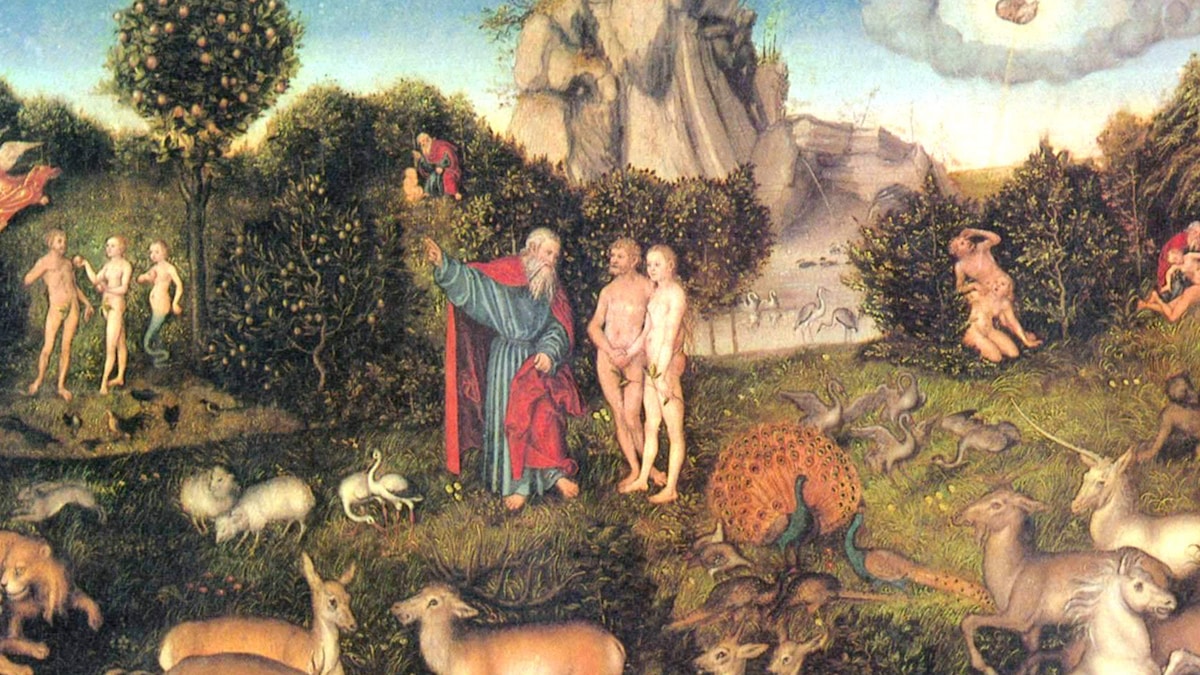We’re now several weeks into the pro football season, and fans of the 32 NFL franchises are all hoping their team makes it to the Super Bowl next February. In the 57 years the Super Bowl has been played, some teams have been much more successful than others, especially Pittsburgh, New England, Dallas, Green Bay, and San Francisco. Buffalo and Minnesota, on the other hand, have each played in four Super Bowls—and lost all four times. At least they made it there; there are four teams who’ve never been to the championship game even once: Houston, Jacksonville, Cleveland, and of course, Detroit. I began following the Lions back in 1970—which was actually the year of their best shot at making it to and even winning the Super Bowl; unfortunately, they lost in the first round of the playoffs. Long-suffering Lions fans like me are used to being disappointed by the team, over and over again. I want to believe this year is different, that they now have an owner, general manager, and head coach who really know what they’re doing, that they’ve managed to change the culture of losing, and that the team will finally have not just a winning season, but a successful run in the playoffs—but long-time fans can’t forget that the Lions have always found a way to disappoint those who follow them.
Let’s pretend the previously-unthinkable happens and the Lions not only make it to the Super Bowl this season, but actually win it. Metro Detroit, and most of Michigan, would go crazy with amazement and delight; the celebration that followed would probably set new records for energy and enthusiasm and excitement. If that happened, would it make sense for long-time fans like me to resent newer fans who’ve not experienced over half-a-century of frustration like I and many others have? Would it be reasonable for us old-timers to say to younger fans, “Hey, you haven’t suffered like us, so you don’t deserve to celebrate the Lions’ victory,” or to complain, “If you’re going to party after having it so easy as Lions fans, we refuse to”? No, of course not. Even those fans who jump on the bandwagon at the last minute have the right to root for whatever team they choose, and to rejoice in that team’s victory. They may not fully appreciate it as much as those of us who’ve remained fans through all the lean years and the many heartbreaks, but they’re just as entitled to celebrate as anyone else. This idea applies not only to sports, but also to life in general. Every good thing we have, and all the good things we’ve accomplished in life, are to one degree or another rooted in or made possible only by God’s free and undeserved grace. Therefore, we have no right to complain if someone else seems to have even more than we do. God is generous, but none of us truly deserves His gifts—and so the only proper response to divine blessings is one not of envy, but of gratitude.
As we see in the Gospel of Matthew (20:1-16), this can be a hard message to understand and accept. The idea of equal pay for unequal work rubs us the wrong way, and we can sympathize with the workers who complained about laboring all day in the heat, yet seeing those who worked only one hour getting the same pay as them. What’s usually overlooked, however, is the generosity of the vineyard owner—not so much in the amount he paid the workers, but in the fact that he hired them in the first place. Two thousand years ago there were no such things as labor unions, formal contracts, or guaranteed salaries. Most people lived day to day, relying on a daily wage, and unskilled laborers faced a harsh truth: if they didn’t find work that day, that night they and their families would go hungry. The owner of the vineyard was doing his part to ensure that everyone in his community would be able to afford to eat that day; this was very generous on his part—but not everyone was grateful. Jesus is warning that we must not fall into such self-centeredness and envy. In the Book of the Prophet Isaiah (55:6-9), the Lord says “My thoughts are not your thoughts, nor are your ways My ways.” If we want to begin to understand the ways of God, there’s no room in our lives for selfishly asking “What’s in it for me?” or for complaining, “They have more than I do,” or for whining, “It isn’t fair!” If anyone has the right to complain about unfairness, it’s Jesus: He has given us so much, even to the point of dying on the Cross, yet most people ignore Him or only turn to Him when they need something. Despite all this, He continues to love everyone, without exception—and if we want to be part of His Kingdom, that’s the example we need to follow.
Some years ago a book was written about famous people who converted to Catholicism near the end of their lives (Deathbed Conversions, by Karen Edmisten), including the notorious gangster Dutch Schultz, who had been involved in numerous acts of crime, including murder. As he lay dying in a hospital in 1935, though Jewish, he asked for a priest and was baptized, and after dying was given a Catholic funeral. Many people across the country complained; it was scandalous, they said, that such a vicious man, guilty of so many despicable crimes, could be accepted by the Church and “sneak” his way straight into Heaven (p.51). However, these critics forgot that Jesus died to save everyone, even those who, like the Good Thief crucified with Him, converted at the last minute. Moreover, no one in need of God’s mercy—meaning all of us—is in a position to insist on strict justice, for only Jesus and Mary can measure up to that standard.
What does all this mean? Very simply, we need to be quite careful about judging others, or making comparisons and complaining about our lot in life, or being envious of those who seem to have it easier than we do. These things would be as foolish as a long-time, diehard Lions fan refusing to celebrate a successful season because some Johnny-come-latelies were also rejoicing over the team. Just as no true Lions fan would make that mistake, so no true Christian can fail to give thanks over the last-minute conversion of someone who might otherwise have been forever lost. When Jesus told His disciples, “there will be more rejoicing in Heaven over one repentant sinner than over ninety-nine righteous people,” He was not only assuring His followers of God’s mercy; He was also warning them that if they wanted to fit into or belong in Heaven, they too would have to rejoice each time a sinner is converted. I honestly don’t know if the Detroit Lions will make it to the Super Bowl this year, or even in my lifetime, but I do know the only way I, you, or anyone else will be welcomed into Heaven is by accepting God’s mercy and by desiring, praying for, and rejoicing each time another sinner chooses to do the same.








